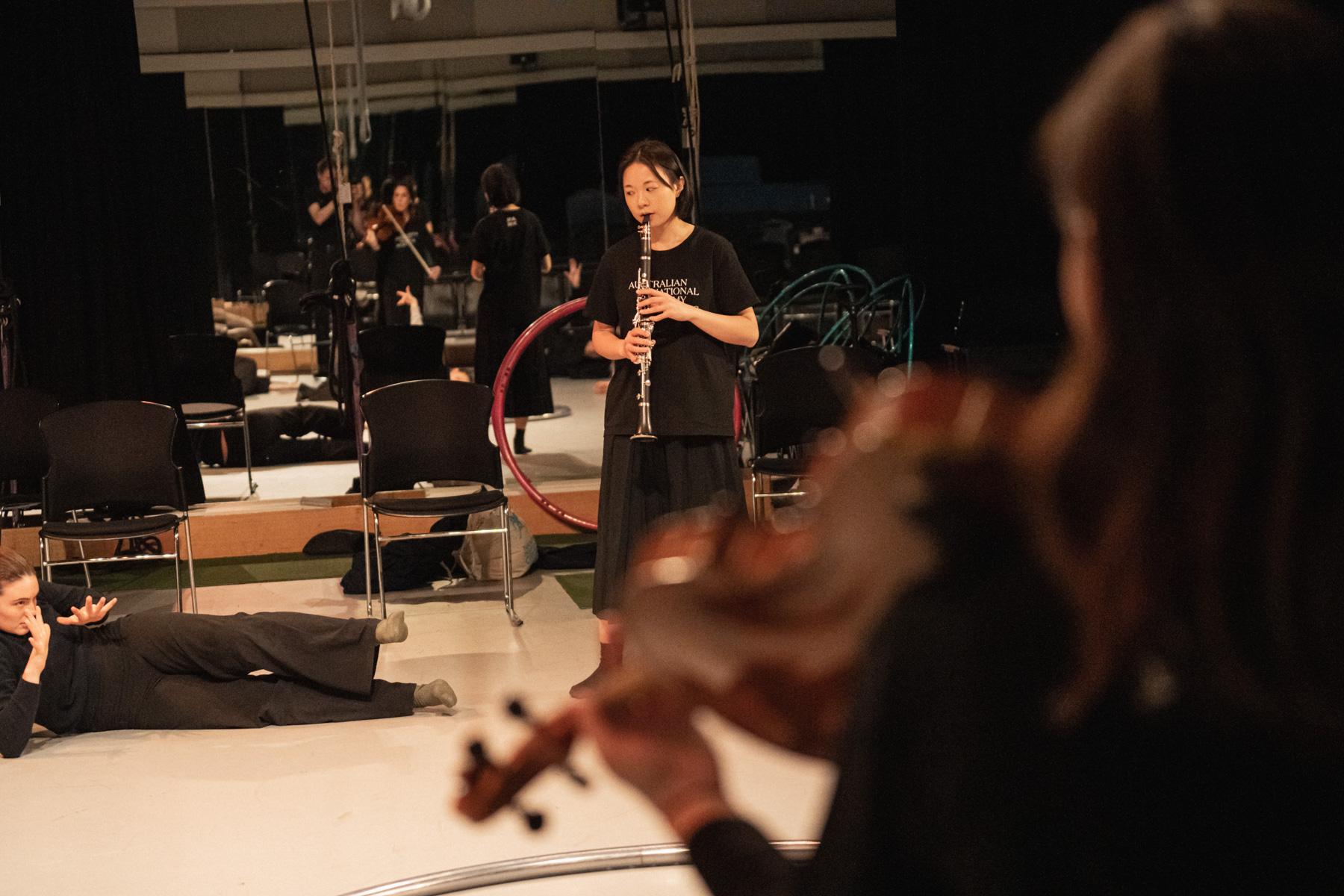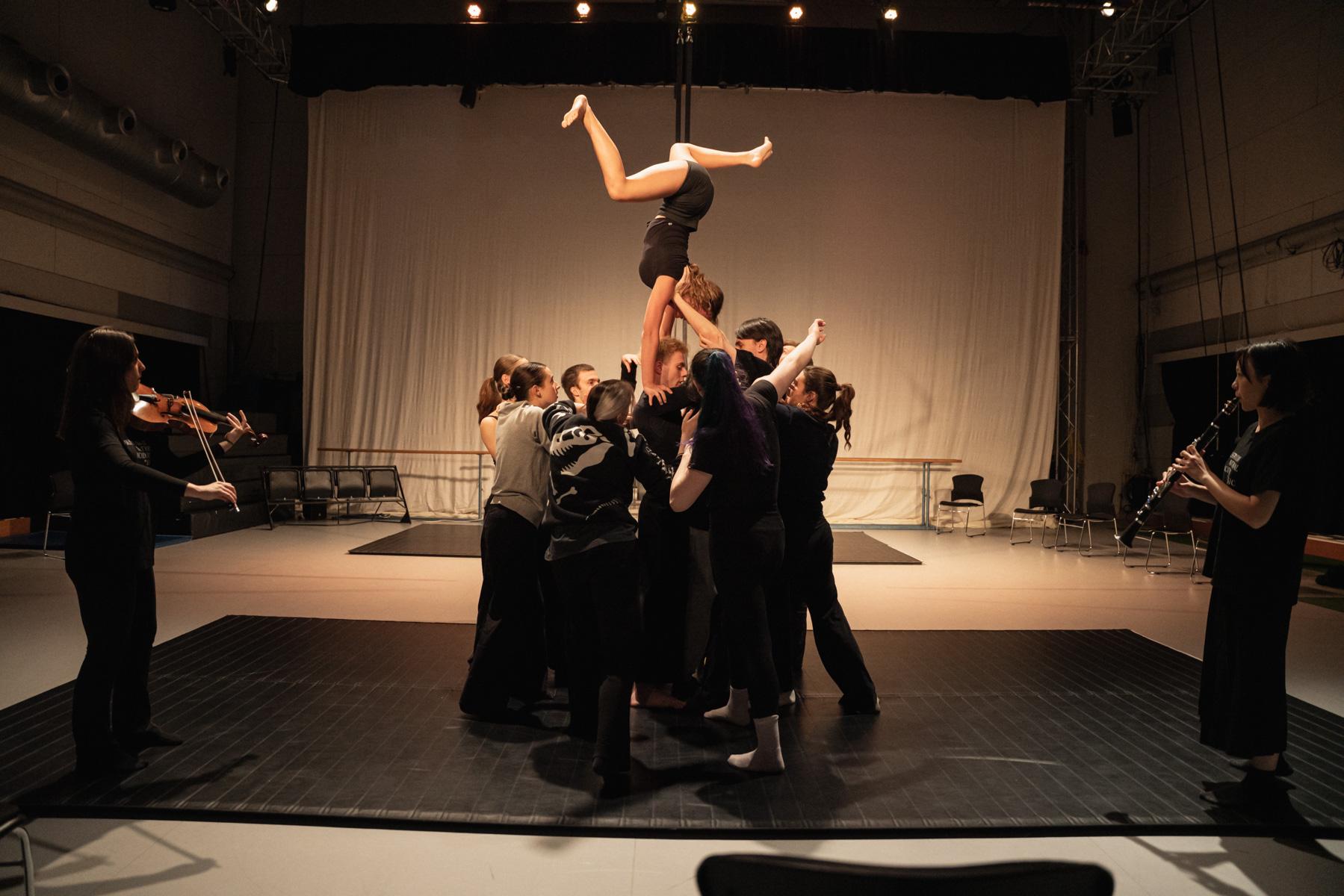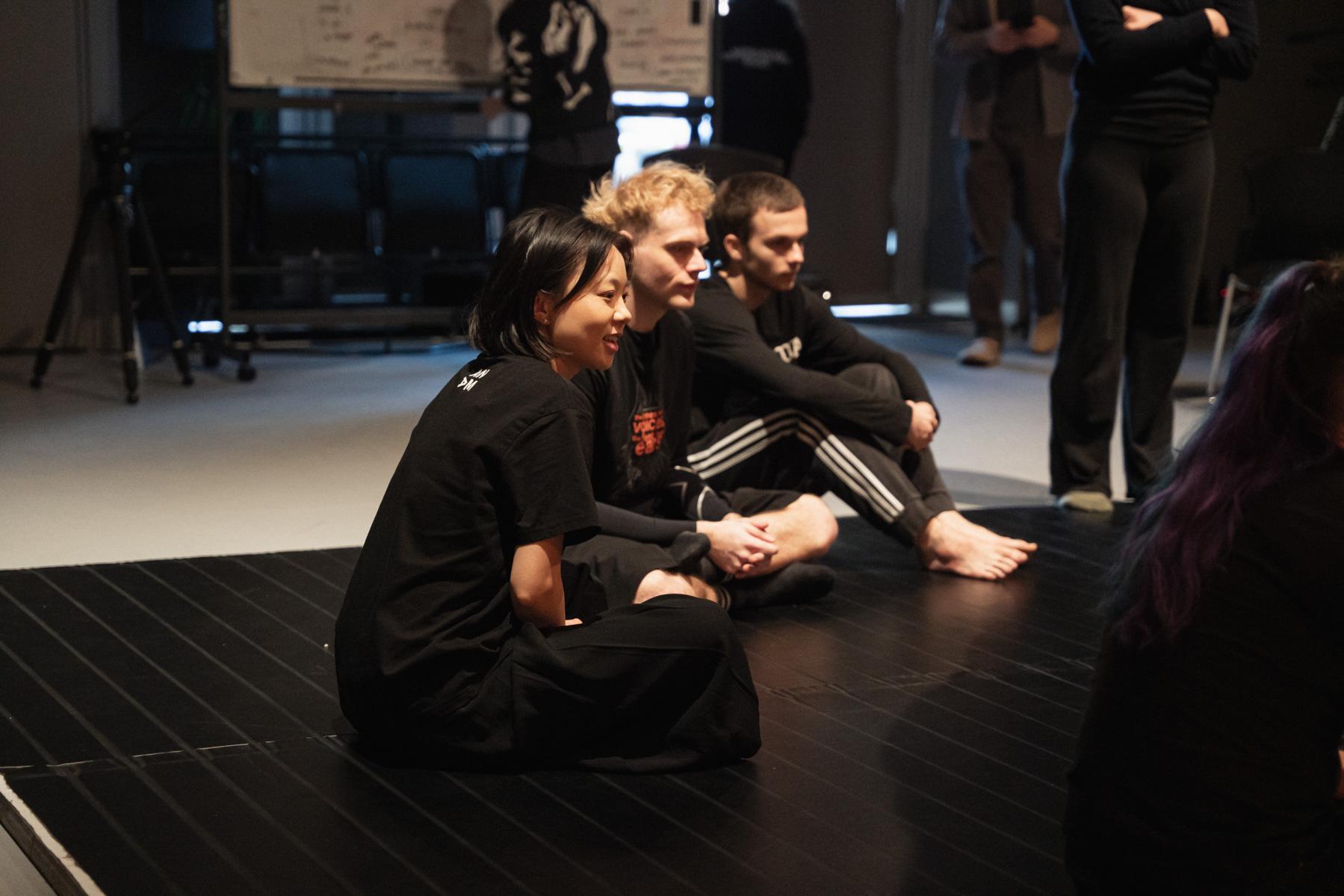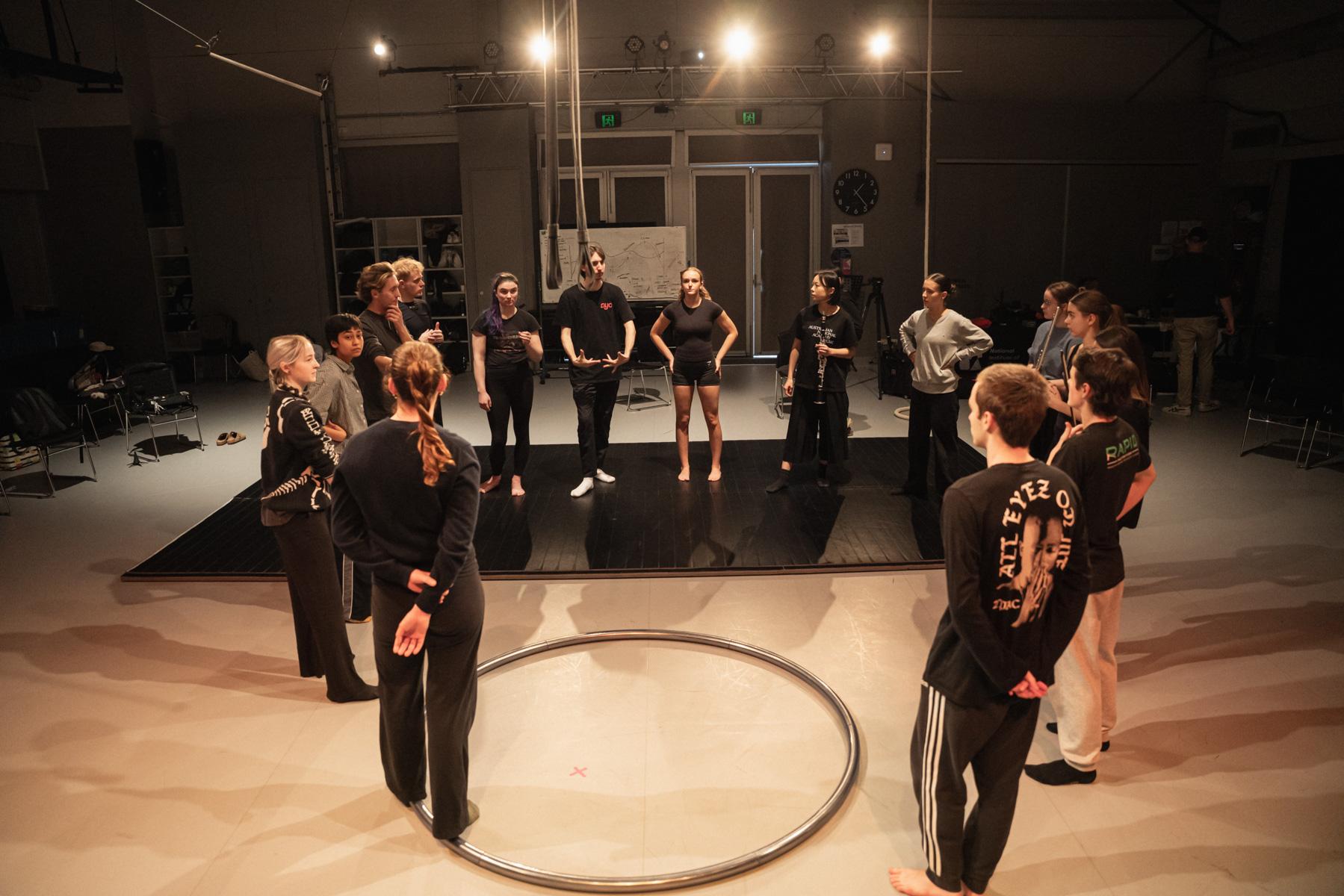The Australian Government funds the eight national elite training organisations in the performing arts, which support Australia's thriving creative economy. This group of 8 organisations - the Arts8 - deliver training programs that promote artistic and cultural excellence.
Every year two artists in the midst of their training at these organisations come together a special multi-disiplinary collaboration.
This year Karen Chen participated in this project. We spoke with her about her experience in this collaboration.
Tell us about the recent Arts8 collaboration project you participated in.
2 students from each of the 8 institutions came together across 3 intensive days to learn, experience, explore and cross-collaborate. This year was hosted by the National Institute of Circus Arts (NICA) in Prahran, Melbourne. I felt warmly welcomed because of how generous, open-minded and kind everyone was. It was a really interesting challenge trying out the other crafts — going in with whole-hearted trust and openness when it came to circus teamwork, and trying to move my body as fluidly and organically as possible as I have two left feet!

What was the final work produced as part of this project?
The Arts8 theme word changes annually — this year's was 'Perspective'. We mapped out a story arc as a reflection of our shared experiences: the innocence of curiosity, dedication and grit even when it means hardship, and ultimately the triumph of our pure love for what we do. Inspired by the first 1.5 days of craft workshopping we incorporated the ideas to create approximately a 10-minute performance. This included a short film and stop-motion animation, improvisatory music, circus techniques, the power of voice and breath, and connecting with each other and Country through our movements. We also used the poem 'You do not have to be good' by Mary Oliver, as a motivic gentle reminder to all artists and their craft-making. It was a very intimate experience showing our vulnerabilities and having the agency to just "let go". Our movements and instrumental music were also improvised which meant the exact way of how we expressed will forever remain captured only in that moment of time, and I think that's really special.

What did you learn from your colleagues from different artistic practices?
First and foremostly, their remarkable kindness, open-mindedness and intention. I think sometimes it can be hard to go into unfamiliarity and immediately be so present and with a care. It's something that always touches my heart and inspires me. I think the latter qualities are also super valuable to equip as an artist, especially when collaborating with others (which is pretty much most of the time)! When we were putting the puzzles together for the performance, it was really interesting to see that ideas regarding a specific craft tended to be suggested by someone else not of their artistry. It really goes to show that at the core, the beauty of collaboration inspires, responds and reacts mutually. My colleagues were also very good at always looking out for safety and comfort levels when teaching their craft to us, which was so important in making it a safe space to work together.

Why are projects like this important?
I think being able to have a hands-on learning experience really opened me up in so many different ways. On a personal level, from experiencing the other crafts like movement and voice, I found that it was quite a remedy to my mind and body, even as far as having a positive effect in releasing performance tension. It definitely helped me feel freshly recharged and grounded, and I now know some fun new exercises to help look after my wellbeing. Then on a larger scale, of course we are passionate about classical music, but it's important to think about how can we as musicians keep the artform going in as many ways, as interesting and accessible as possible. From just cross-collaborating, that's already equipped you with versatility and provided multiple pathways with different artistic disciplines. Not to mention, the lifelong special connections with your colleagues that hopefully one day, you will be able to cross paths and collaborate again! Experiencing this wonderful project has also got me thinking about how can we incorporate these craft elements in our own concert curation? Stagecraft is an intriguing enigma I always think about, and I'm still learning the ropes. Presenting a concert is not just showcasing your endless dedication and effort you've put into the repertoire, but it is also an experience for the audience. You have the opportunity to advocate, inspire, and to share the love for music in a totally fresh take.

Images by Cameron Grant.